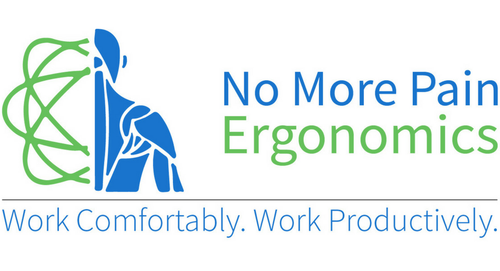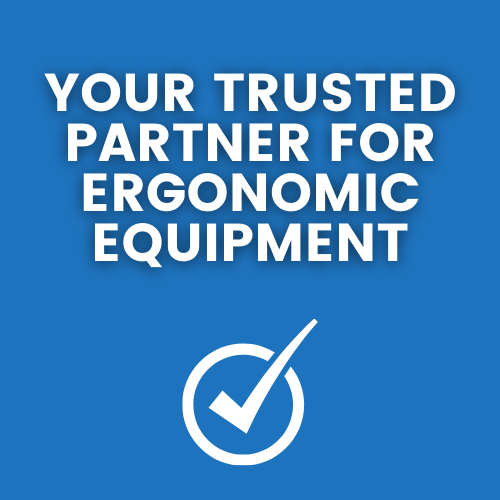-
Shop
- 🔥 Warehouse Clearance Sale 🔥
- Ergonomic Mice
- Ergonomic Keyboards
- Specialised Ergonomic Mice
- Standing Desks
- Ergonomic Chairs
- Laptop Stands & Risers
- Monitor Risers
- Computer Monitor Arms
- Footrests
- Wrist and Forearm Supports
- Back Supports
- Tablet Accessories
- Boardroom Chairs
- Headsets
- Other Ergonomic Equipment
- Online Ergonomic Training Courses
- New Products

- For Customers
- For Business Customers
- For Health Professionals
- About Us
- Reviews
- Product Recommendation Tool
When choosing ergonomic equipment there are a few factors that could be missed and create more pain and discomfort at work. We're here to highlight some important factors that should be addressed to ensure you are getting the optimal equipment for your individual workspace.
Footwear
The type of footwear we wear at work is critically important as to how equipment is used. Below are some guidelines around footwear in the office space to consider when assessing ergonomics.
Wear Shoes - Simple, yet important. Although it is more comfortable to take the shoes off while
working, for safety reasons it is essential to keep shoes on at all times to ensure toes and feet are safe
from obstacles, items being dropped on them, etc.
Shoes with Grip - Wear shoes that have a good grip on the base, this eliminates any risk of trips or falls
on slippery surfaces around the office or walking to and from work.
Seated Position - Using shoes with a heel lifts the height of the lower legs, this in turn will impact the
angle of the ankles, knees and hips when seated. This also applies when using a footrest.
Standing Position - Similar to sitting, standing using shoes with heels can become painful when
prolonged or continual standing throughout the day occurs. It also affects the height of standing when
using a standing desk. Correct body position is crucial to ensure the equipment is able to adjust to the person at the workstation.
Phone Use
If you are experiencing neck pain while working at the office desk, it may be way and for how long the phone is used. Even without holding the phone to the shoulder while talking (which is a big mistake... big, huge.), but our natural tendency is to tilt our heads to the side while using a hand held phone. This may eventually be the cause of a neck injury or pain requiring time off work and rehabilitation.
Consider How Long You Use The Phone - If you find you use the phone even a few times a day could
be problematic in the long term.
Position of the Desk Phone - When considering ergonomics, it is important to ensure you are
mitigating the need to reach while seated at the desk. Ensure the phone is placed within arms length without requiring to move the torso. Place the phone on the standing desk so that you do not need
to reach down to use the it. Position the desk on the opposite side to your dominant hand (if you are
right handed, place the desk phone on your left hand side), this allows for your dominant hand to
write notes or dial numbers.
Convert to Using a Soft Phone - businesses are beginning to see the benefits of using a 'soft phone'
that allows the user to call, take calls, control calls through an application on their computers, as
opposed to the physical desk phone that requires space and reaching.
Use a Headset - Headsets have been the most optimal solution to neck pain from desk phone use.
They are available with different function (e.g. wireless/bluetooth, control panel on cord, pick up/hang
up call, in-built microphone) that allows the user to use the phone without any reaching at all.







